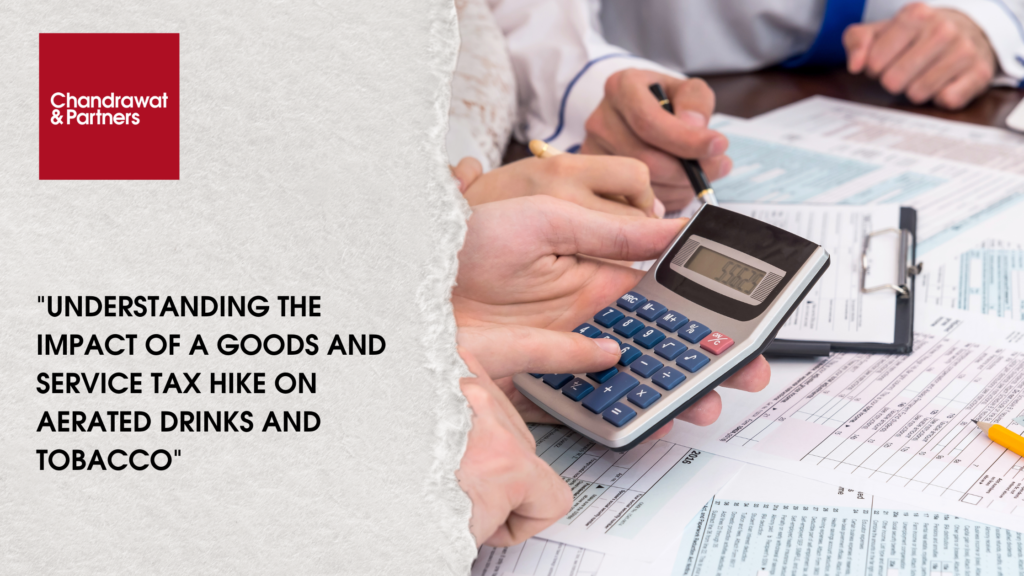
INTRODUCTION
Goods and Services Tax (“GST”) is a tax system in India that replaced many indirect taxes such as Value Added Tax, excise tax and service tax Introduced in India on 1 July 2017 to make the tax process simpler and more efficient, GST applies to sales of goods and services and will be collected at every step of production or sale but businesses can claim credit for the tax they have already paid. This avoids double taxation and keeps prices fair; GST helps to create a unified market across the country and makes it easier to do business.
GST on all basic goods is either exempt or charged at the lowest slab of tax. Luxury and demerit goods attract the highest slab of tax. Luxury goods like cars and washing machines, and demerit goods like aerated water and tobacco products attract cess on the top of the highest slab of 28%.
Recently, the Group of ministers constituted by the Government of India proposal to increase the GST on aerated drinks and tobacco to 35% to make up for the loss from rate cuts on other common-use items has sparked discussions about its potential social, economic, and regulatory impacts. The four-tier tax slab of 5%, 12%, 18%, and 28% will continue and a new rate of 35% is proposed by the Group of Ministers.
IMPLICATIONS ON BUSINESS
Tobacco and aerated drinks industries are very important and play a significant role in terms of providing employment and generating economy. High GST would hamper production, thereby causing unemployment mainly in the areas where these industries dominate.
A significant drop in consumption could reduce the overall tax revenue from these products, counteracting the expected financial benefits.
BALANCING PUBLIC HEALTH AND ECONOMIC IMPACT: THE IMPACT OF PROPOSED GST HIKE
The proposed GST hike on aerated drinks and tobacco is a bold policy step toward promoting public health, generating revenue, and addressing environmental concerns. However, success of this will depend on a balanced approach, strong enforcement, and cooperation of stakeholders. While the initiative underscores the government’s commitment to public welfare, it also calls for a more nuanced approach to mitigating potential social and economic challenges.
ANALYSIS
The tobacco and aerated drinks industry is already subject to significant higher taxation and regulating this hike may push consumers towards cheaper, unregulated alternatives affecting the legitimate business.
High taxes often lead to an increase in smuggling and black market. This is particularly evident in the tobacco sector where illicit trade thrives when legal products become too expensive.
Consumers accustomed to these products might view the increase as unfair, potentially leading to public discontent and resistance to the policy. The increase in tax could contribute to overall inflation particularly in aerated drinks and tobacco company. Producers of the same may pass the higher tax burden to consumers which further led to reduction in affordability.
For more information or queries, please email us at
enquiries@chandrawatpartners.com




